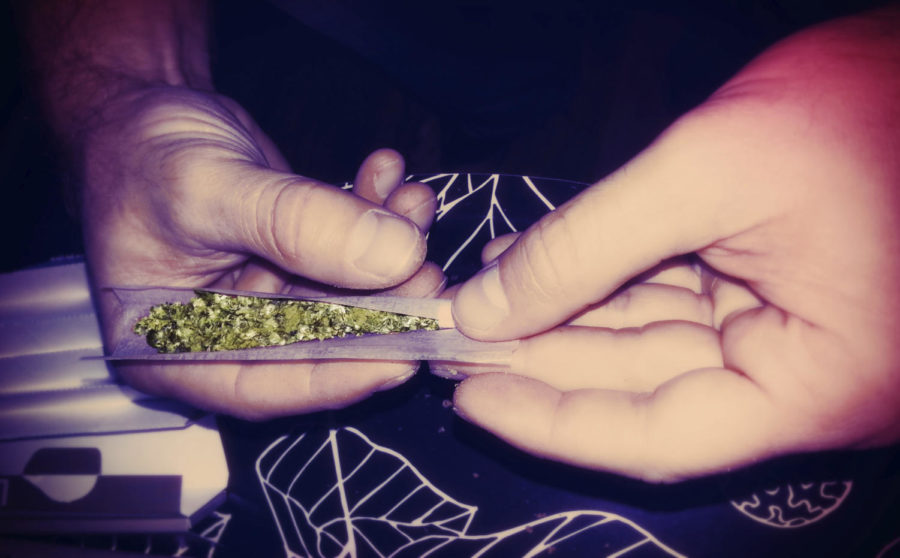Ward: Reconsider recreational marijuana
Given recent studies regarding the effects of marijuana, columnist Ward believes we should remeasure our thinking on recreational marijuana use.
February 6, 2015
When looking at the timeline of American culture, it’s incredibly obvious how times have changed. We’ve fought suffrage and racial discrimination and the unfortunate fashion choices, which could lead one to believe that we have learned from all our mistakes. To that, I say, “not necessarily.”
One of this country’s biggest opinion flips was the view on cigarette smoking. There was a time when smoking was encouraged and viewed as being cool. You can’t watch a movie made in the ’50s without seeing some glamour girl light up with the help of match-bearing gentlemen.
Then it became apparent that smoking cigarettes had no benefit, least of all looking cool, so America fought hard to end the practice. This movement definitely struck a chord because in 1955 about 45 percent of adults smoked, whereas in 2010, only about 19 percent of adults smoked cigarettes and the numbers are still dwindling.
Why, you may ask, am I rehashing Americans’ cigarette habits and how they have evolved? Well, it is because we are heading down an eerily similar path with a new kind of smoking — marijuana.
Popularity of marijuana became mainstream for the white upper middle class in the 1960s when President Kennedy and Johnson determined that the drug didn’t induce violence or lead to harder drugs. Of course the drug has always existed because it comes from a plant, but this was kind of the jumping off point when it comes to the escalation of recreational use.
As it became more obvious that smoking marijuana was turning into a recreational activity, the government stepped in with attempts to slow its use by implementing various laws and acts, which evidently only spurred its use. In a 2014 survey asking students in grades 8 to 12 about their use of marijuana, 45 percent of 12th graders had admitted to using the drug.
I personally think that number is ridiculously high — no pun intended — because I don’t view the practice of smoking to be a good one. My guess usage is so high due to the misconception that marijuana does not hurt the consumer.
The Colorado Department of Public Health and Environment conducted a study in 2014 to attract people’s attention to just how harmful this drug can be. The study centered on how smoking or ingesting marijuana during adolescence will impact brain function and behavior as well as other common fallacies.
There are many ways in which this generation has found to validate its recreational use of pot, one being that it cannot lead to any other addicting drugs down the road. This study in particular put that idea to rest by proving that there is a correlation between adolescent marijuana use and other illicit drugs in adulthood.
Additionally, one of the most popular misconceptions about smoking weed is that it doesn’t actually hinder brain function. Well, those individuals are in for a rather rude awakening. Adolescents who ingest cannabis on a consistent basis have shown a decline in IQ as opposed to those who didn’t use the substance.
Another very popular myth associated with marijuana consumption is the idea that you cannot become addicted to it. Wrong again. An additional study conducted by Proceedings of the National Academy of Sciences showed that 1 in 6 adolescents will become addicted to the practice, much like past generations that became addicted to cigarettes.
Because I am a columnist and it’s my job to have steadfast opinions on various topics, it could be easy for one to think that I am simply biased against marijuana because of my own personal views. However, I believe that it is no longer a battle of whether or not people think smoking weed is okay. It is now time to look at the evidence presented before us as fact. Marijuana causes more harm than we originally thought, much like cigarettes cause significantly more harm than people initially thought.
It’s okay that we were wrong. The important thing is that we learn from our misconceptions and not allow history to repeat itself. We spent way too much time before we accepted the adverse effects cigarettes have on our bodies. We cannot allow the same to happen with marijuana, especially now that everything people thought was good about the drug has gone up in smoke.







